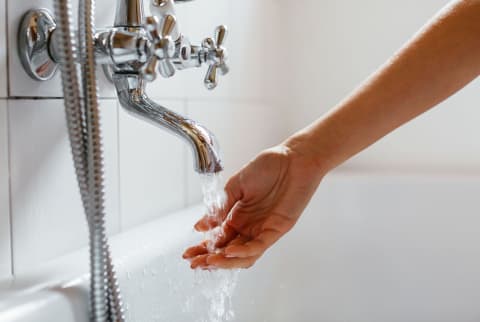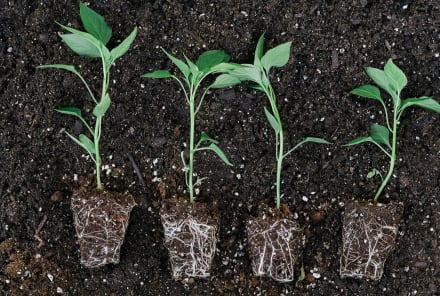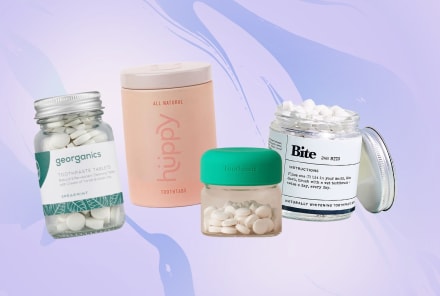Advertisement
These 5 Organizations Are World Water Day Champs


The United Nations designated March 22 World Water Day back in 1993. In the 26 years since, freshwater has only become more important—and more difficult to come by.
A staggering one in four primary schools now lack access to clean drinking water, and 2.1 billion people live without safe water at home. The theme of this year's World Water Day, "Leaving Nobody Behind," addresses this injustice and speaks to the UN's goal of bringing potable water to all by 2030.
"Today, billions of people are still living without safe water—their households, schools, workplaces, farms and factories struggling to survive and thrive," the World Water Day website reads. "Marginalized groups—women, children, refugees, indigenous peoples, disabled people, and many others—are often overlooked and sometimes face discrimination, as they try to access and manage the safe water they need."
If things don't change, 700 million people worldwide could be displaced by intense water scarcity in the next 11 years. These five organizations are leading the charge to make sure that doesn't happen. Read on to learn how you can support the important work they do, be it through a donation or lifestyle tweak:
Clean Water Action
What they do:
Clean Water Action was founded to support the most comprehensive legislation on freshwater in the U.S., the Clean Water Act, in 1972. Since then, the organization has put on activist trainings around the country in the name of water safety. They also do a lot of campaigning for environmental politicians, organize cleanups, and raise awareness about lesser known water issues around the world. (Their blog is a must-follow.)
What they want you to do:
"One of the most important things people can do to mark World Water Day is to speak out in opposition to the Trump administration's proposal to weaken the Clean Water Act. This proposal would put drinking water at risk by stripping clear safeguards from millions of miles of streams and more than half the nation's wetlands. In addition to feeding drinking water sources, these wetlands provide habitat for wildlife, protect communities from flooding, and power the small businesses that anchor communities throughout the country."
2. WaterAid America
What they do:
This nonprofit works to bring clean water and working toilets to those in need. Since 1981, WaterAid has managed to bring water to 25.8 million people and toilets to 25.1 million by engaging with governments around the world on the importance of proper sanitation and donating money to community partners.
What they want you to do:
"This World Water Day, we are asking consumers to think about the 'virtual' water cost of many consumer products. According to our World Water Day Report, your morning coffee, for example, has a virtual water cost of almost 35 gallons of water, in terms of planting, irrigation and processing. Avocados are also water-intensive; just 1 pound of avocados requires 238 gallons of water. One hamburger has a virtual water cost of 449 gallons of water."
To bring down this virtual cost, WaterAid recommends swapping coffee for tea (which has a smaller water footprint, at around 9 gallons/cup), reducing your meat intake, and wasting less food.
3. The Water Project
What they do:
The Water Project is doing amazing work in sub-Saharan Africa. The nonprofit has been funding infrastructure such as wells, sand dams, and rainwater collection systems for 10 years and sharing progress in real time on their impact page. (When I checked, they'd helped bring water to 428,750 people so far that day!)
What they want you to do:
The organization's Water Challenge is a great way to approach donating when your budget is tight. For two weeks, challenge yourself to drink only water, and then donate what you saved by skipping over coffee, juices, alcohol, etc. Easy! "Drinking only water for two weeks can free up at least enough cash to give one person access to water," the challenge page reads. "Over the last 12 months, over 800 groups all around the U.S. and Canada signed up for The Water Challenge to fund water projects at schools and community centers in Africa."
4. Water.org
What they do:
When you donate to Water.org, your money goes toward loans for families that lack fresh water. Operating off the idea that charity alone is not a long-term solution, these microloans empower people to take charge of their water supply for good.
What they want you to do:
Water.org encourages giving directly to women and girls since they are often the ones whose livelihoods are most affected by water scarcity. (According to the U.N., women and girls are responsible for collecting water in eight out of 10 water-scarce households.)
"Water has the power to protect and save lives. The power to turn dreams into realities and poverty into possibility. Women and children spend 200 million hours every day collecting water. This is time that could be spent working, caring for family, or going to school. Women and girls living without a toilet spend 266 million hours every day finding a place to go. This is time that could be spent working, caring for family, or going to school.”
5. charity: water
What they do:
charity: water has raised over $360 million to help provide water to 9.5 million people in 27 countries by donating 100 percent of public donations straight to water-starved areas thanks to the support of a robust donor group. Then, it maps every completed project on Google Maps for total transparency.
What they want you to do:
"It's important to remember that the water crisis is completely solvable. Currently, 663 million people are living without access to clean water—which is more than double the size of the U.S. population, or one in 10 people worldwide. That number may seem staggering, but the reality is we've never been in a better position to bring it down to zero, and we believe that will happen in our lifetime. It only takes $30 to give one person access to clean water, and at charity: water we work hard to engage with our donors and make giving easy. Through our monthly giving program, The Spring, people can donate each month and join a community of world-changers, who are helping us work toward the day when we can say that every single person on this planet has access to life's most basic need."











